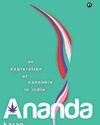
My father, a student in Calcutta in the late 1960s, once went to a post office in the city. He was surviving on a meagre scholarship without the support of his parents, a father who had disowned him—temporarily—for leaving his village on the Indo-Bangladesh border in the hope of an education that would give him a life different from the one his refugee parents had had. He had something important to communicate to them in faraway Hili, and, unsure about how long it would take a postcard or inland letter to reach them, he decided to send them a telegram. It was the third week of the month, and, having spent his savings on buying a ticket for an East Bengal–Mohun Bagan football match, he had only a few rupees for the rest of the month. When he found out the cost of sending the telegram, he apologized to the man at the counter about his inability to send the telegram, saying that he would write a letter to his parents instead. This is how my father remembers this conversation from five decades ago, the hurt and humiliation still fresh.
“Why did you waste my time when you can’t send the telegram?”
“Sir, I don’t have the money, I didn’t realize that it costs this amount of money . . . ”
“This amount? It’s very little.” “It’s not little for a student like me, sir. I’ll send them a letter . . . ” “A letter? Why do poor people have to write letters? And why do poor and illiterate people in the provinces have to receive letters from their children?”
And later—“Why do the poor have to write, why do they have to waste their money on pen and paper and writing?”
Bu hikaye Reader's Digest India dergisinin July 2024 sayısından alınmıştır.
Start your 7-day Magzter GOLD free trial to access thousands of curated premium stories, and 9,000+ magazines and newspapers.
Already a subscriber ? Giriş Yap
Bu hikaye Reader's Digest India dergisinin July 2024 sayısından alınmıştır.
Start your 7-day Magzter GOLD free trial to access thousands of curated premium stories, and 9,000+ magazines and newspapers.
Already a subscriber? Giriş Yap

ME & MY SHELF
Siddharth Kapila is a lawyer turned writer whose writing has focussed on issues surrounding Hinduism. His debut book, Tripping Down the Ganga: A Son's Exploration of Faith (Speaking Tiger) traces his seven-year-long journey along India's holiest river and his explorations into the nature of faith among believers and skeptics alike.

EMBEDDED FROM NPR
For all its flaws and shortcomings, some of which have come under the spotlight in recent years, NPR makes some of the best hardcore journalistic podcasts ever.

ANURAG MINUS VERMA PODCAST
Interview podcasts live and die not just on the strengths of the interviewer but also the range of participating guests.

WE'RE NOT KIDDING WITH MEHDI & FRIENDS
Since his exit from MSNBC, star anchor and journalist Mehdi Hasan has gone on to found Zeteo, an all-new media startup focussing on both news and analysis.

Ananda: An Exploration of Cannabis in India by Karan Madhok (Aleph)
Karan Madhok's Ananda is a lively, three-dimensional exploration of India's past and present relationship with cannabis.

I'll Have it Here: Poems by Jeet Thayil, (Fourth Estate)
For over three decades now, Jeet Thayil has been one of India's pre-eminent Englishlanguage poets.

Orbital by Samantha Harvey (Penguin Random House India)
Samantha Harvey became the latest winner of the Booker Prize last month for Orbital, a short, sharp shock of a novel about a group of astronauts aboard the International Space Station for a long-term mission.

She Defied All the Odds
When doctors told the McCoombes that spina bifida would severely limit their daughter's life, they refused to listen. So did the little girl

DO YOU DARE?
Two Danish businesswomen want us to start eating insects. It's good for the environment, but can consumers get over the yuck factor?

Searching for Santa Claus
Santa lives at the North Pole, right? Don't say that to the people of Rovaniemi in northern Finland